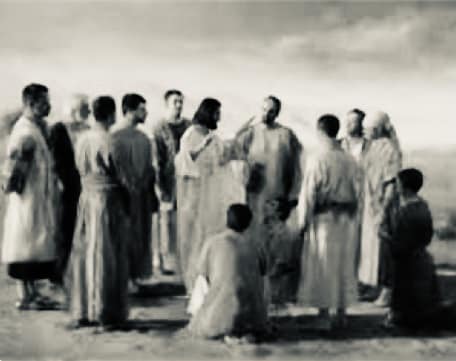660 total views

The gospel reading today (Mt 9:36-10:8) shows the movement of Jesus’ mission, from his self-presentation in word and deed (Mt 5-9) to commissioning and instructing his disciples (ch. 10). It appears that Jesus’ compassion was triggered ‘while going around to all towns and villages, seeing the crowds like sheep without a shepherd and was deeply moved with pity,’ (9:35-36; cf s1S#40 Moved with Pity). He pictured it then as an ‘abundant harvest but with few laborers’, (9:37-38). So Jesus, sent the Twelve, as first laborers to the harvest, (10:1; cf s1S# Send).
Both the OT and the NT refer to harvest in a consistently symbolic sense. The word
“therismos” (θερισμὸς) occurs thirteen times in the NT with the exclusive meaning of harvest in a metaphorical sense. In Mt 9:37,38; Lk 10:2; John 4:35, for example, it refers to the gathering of converts to Christ. To this, the disciples are thus commissioned. Later it would mean the gathering of the righteous at the final judgment, (Mt 13:30; Mk 4:39; Rev 14:15).
In the instructions of Jesus regarding the mission of the Twelve, he advised them to take no gold, silver, copper, etc, vv 10-11). They were to rely on hospitality, that is, kindness extended to strangers. That they will “give without payment” (v8b) is a prohibition to expect or demand anything over and above normal hospitality and should be given without strings attached. Their mission is not to make a living in this world by gathering gold or silver, but by initiating, cultivating, and maintaining a network of friends and disciples. Finally, the mission of the disciples is patterned on that of Jesus, with power over demons, disease, and death(vv1, 8a; see Mt. 4:23; 9:35; 10:7-8).
He makes them brokers of God’s powers which belong to God alone. The disciples who share in this power must recognize it is God’s and not their own possession.
The harvest is still plentiful and we are all sent to gather people to Jesus. We are a “missionary Church.” Believe that Jesus empowers us like the first disciples if we only remain in Him for he has already conquered sin and death through his blood and so reconciled us to God (Rom 5:8-11) and has become his treasured possession (Ex 19:5-6). Amen.
Moved With Pity
….The verb ‘splanchnizomai’
( σπλαγχνίζομαὶ ) the root word of which literally means ‘entrails’ or ‘guts’, (cf. Acts 1:18), and considered from where comes one’s strongest emotion, (thus the expression ‘gut feelings’), and with the nuance of a reflexive verb we get the picture of a person being convulsed from the very depths or innermost part of his being to act in the most personal and so involved way. Christ is also depicted as such- ‘moved with compassion or pity’, for the crowds following him, (cf Mk 6:34; Mt 9:36, 14:4, 15:32), as well as for those afflicted with illness or incapacity before healing, (cf Mk 1:41; Mt 29:34; Lk 7:13)…
Send
…One could easily hear from the Greek verb “ἀποστέλλω” (apostellō) one of the most familiar words in the gospels- apostle. For that is what it practically means to be an apostle, one who is sent. Throughout both the Old and the New Testaments, in theologically significant contexts, the word highlights the divine initiative in providing specially chosen persons to bring about the fulfillment of God’s redemptive purposes, like the prophets in the OT. In the NT it refers to the Father sending Jesus as the one ultimate redeemer of his people (Mt 10:40; MK 9:37; Lk 4:18; John 3:18, 6:29, 17:3,18). In turn, Jesus sends his apostles to preach and heal, to continue his mission (Mt 10:1f; Mk 6:7f; Lk 9:1f)…

















